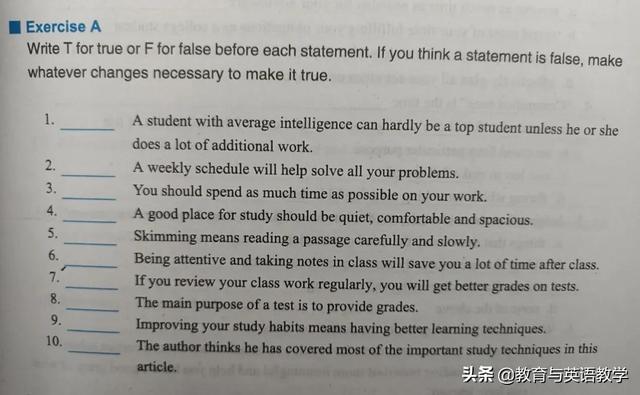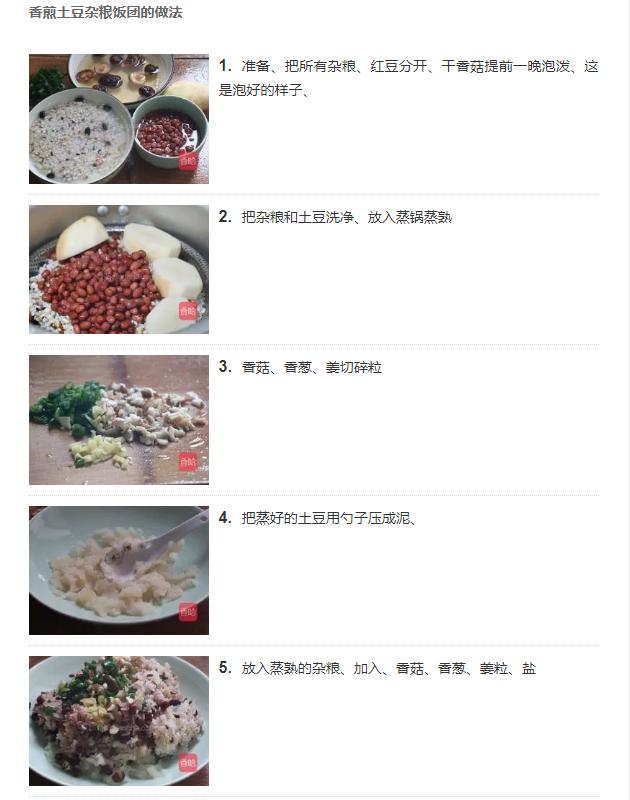张老师的语文课堂阅读与理解(教学笔记〡张老师手把手教你攻克阅读)

阅读对于语言学习至关重要,这几乎是一个不可争辩的客观真理。
有句话叫“得阅读者得天下”。说这句话的人,当初的意思是告诫即将参加高考的学生,一定要重视高考试卷板块中的“阅读理解”题型,因为这个题型处于整个试卷中的核心地位。阅读理解题的得分是生死攸关的事,有可能直接决定英语考试整张卷子的分数,也自然直接决定你高考的前途命运。
其实,我们把时间拉长,把空间放大,即从整个语言学习的漫漫过程看,从决定语言学习成败的几个关键要素看,“得阅读者得天下”也是正确的,而且,在广袤时空中这个判断更有价值,更有意义,学习者更应该把它作为至理名言,落实到自己的行动中去。
接下来,我打算以“阅读”为话题,分期分批跟大家探讨阅读的方法,帮同学们提高阅读效率,提高学习效率,敬请关注,也希望你喜欢。
第一讲 阅读的基本技能
(Basic Reading Skills)
理解性阅读取决于三种因素的相互作用。哪三种因素呢?①词汇;②语法结构;③(文字)意义。换句话就是,阅读时能不能透彻理解文字意义,关键取决于你对语言的掌握程度。但一般而言,如果你较好地把握了阅读技巧或技能,不但能使阅读更容易,而且在一定程度上有助于你理解得更加透彻。
How to Read a Text 怎样读课文(1)
这里,我为大家介绍一种“三遍阅读法”。
拿到一篇阅读材料(a comprehension passage),你至少应该看两遍:第一遍,先要获取文章的大意(a general impression);第二遍,要专注一些重要的细节(important details)。有时,你需要读第三遍——去捕捉那些拦路虎,即会给你造成阅读障碍的地方。
我们拿一篇文章作为实例,加以说明。
第一遍(First Reading)
把下面课文读一遍,以常速阅读,试着搞清短文的主旨大意,然后做练习A(Exercise A).
How to Improve Your Study Habits
Perhaps you are an average student with average intelligence. You do well enough in school, but you probably think you will never be a top student. This is not necessarily the case, however. You can receive better grades if you want to. Yes, even students of average intelligence can be top students without additional work. Here's how:
1. Plan your time carefully. Make a list of your weekly tasks. Then make a schedule or chart of your time. Fill in committed time such as eating, sleeping, meetings, classes, etc. Then decide on good, regular times for studying. Be sure to set aside enough time to complete your normal reading and work assignments. Of course, studying shouldn't occupy all of the free time on the schedule. It's important to set aside time for relaxation, hobbies, and entertainment as well. This weekly schedule may not solve all of your problems, but it will make you more aware of how you spend your time. Furthermore, it will enable you to plan your activities so that you have adequate time for both work and play.
2. Find a good place to study. Choose one place for your study area. It may be a desk or a chair at home or in the school library, but it should be comfortable, and it should not have distractions. When you begin to work, you should be able to concentrate on the subject.
3. Skim before you read. This means looking over a passage quickly before you begin to read it more carefully. As you preview the material, you get some idea of the content and how it is organized. Later when you begin to read you will recognize less important material and you may skip some of these portions. Skimming helps double your reading speed and improves your comprehension as well.
4. Make good use of your time in class. Listening to what the teacher says in class means less work later. Sit where you can see and hear well. Take notes to help you remember what the teacher says.
5. Study regularly. Go over your notes as soon as you can after class. Review important points mentioned in class as well as points you remain confused about. Read about these points in your textbook. If you know what the teacher will discuss the next day, skim and read that material too. This will help you understand the next class. If you review your notes and textbook regularly, the material will become more meaningful and you will remember it longer. Regular review leads to improved performance on test.
6. Develop a good attitude about tests. The purpose of a test is to show what you have learned about a subject. The world won't end if you don't pass a test, so don't worry excessively about a single test. Tests provide grades, but they also let you know what you need to spend more time studying, and they help make your knowledge permanent.
There are other techniques that might help you with your studying. Only a few have been mentioned here. You will probably discover many others after you have tried these. Talk with your classmates about their study techniques. Share with them some of the techniques you have found to be helpful. Improving your study habits will improve your grades.
(英文选自上海外语教育出版社《大学英语 •精读》董亚芬主编 2006年6月第一版)

第二遍(Second Reading)
现在,把文章再读一遍。这一次,尽量记住一些重要细节,睁大眼,找出那些看上去困难的语言点。如果碰到你不熟悉的单词,不要浪费太多时间为它的意思而惴惴不安,你只需瞻前顾后,看看该词前后的词汇,明智地猜测一下,然后往下读。当你读完第二遍时,请做练习B(Exercise B).


第三 遍
把课文再过一遍,认真学习短文中的关键句子(highlighted sentences或称“最重要/精彩句子”),然后把下列句子译成汉语。

上文重点词汇

记住:Practice makes perfect. 孰能生巧,重在实践。
(未完待续)
,免责声明:本文仅代表文章作者的个人观点,与本站无关。其原创性、真实性以及文中陈述文字和内容未经本站证实,对本文以及其中全部或者部分内容文字的真实性、完整性和原创性本站不作任何保证或承诺,请读者仅作参考,并自行核实相关内容。文章投诉邮箱:anhduc.ph@yahoo.com






